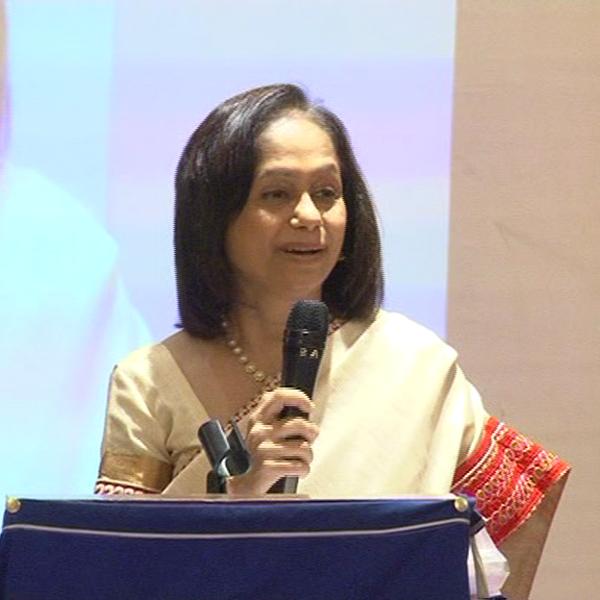Aman Singh Gujral
Founder, Adagio
Aman's idea is that it is important to bring analog back into a digital word that has made intrinsically human things like art and music digital. Aman quit his job as an accountant to enter the unheard-of industry of music cafes, and his venture Adagio has been tremendously successful. 'Chalo Khelte Hai' is a motto derived from various experiences Aman received while envisaging and founding Adagio that proved to him (quite convincingly) that it is important to have fun while doing things you love, rather than 'work' for them, which is often connotated with stress and low morale.
Anshuka Parwani
Founder, Anshuka Yoga
Anshuka is an ex-pilot who had an accident and was able to recover by consistently performing yoga and breathing exercises. Her idea focuses on the use of yoga and breathing techniques to speed up the healing process.
Chaitanya Prabhu
Chaitanya encourages the youth to vote and do something about our nation. Chaitanya's idea talks about unity, being aware and contributing to the well being of our nation through voting given that most of us will be reaching the legal age of voting soon. He exemplifies the ideals of daring to do, daring to take a risk and daring to contribute through voting, voicing and vowing our truth and our vision for our country’s benefit.
Charmaine Lewis-Wali
Head, Modern Workplace – Unicorns, Retail & Growth, Microsoft
Technology is a ubiquitous part of everyone’s lives today. It breaks down barriers and embraces diversity and inclusion. Charmaine’s talk will be centered around how AI can be used in the workplace, at school and at home to drive accessibility thereby making a difference in the lives of differently-abled. During her session Charmaine will discuss the Seeing Eye App built as a garage project in Microsoft which opens a world of possibilities to the visually impaired.
Dinesh Nair
Director, Association of Indian Football Coaches
Dinesh Nair is an ex-national team footballer, part of Mumbai City FC coaching staff, and a trustee of the Andheri Sports Complex, Mumbai. He works on supporting football at the grassroots level and aims to take the audience through his journey by expressing the importance of teamwork, dedication, and discipline. He will emphasize on the significance of accepting the current situation and daring to think outside the box in order to achieve something phenomenal. This talk will not only provide a glimpse into the hardships of life in sports but will also provide an insightful view of how to overcome obstacles to stand tall even after multiple failures.
Karan Karamchandani
Karan is 17 years old and founded ScalezMedia a few years ago, which is a marketing agency that helps businesses devise social media marketing strategy and construct sales funnels. Karan will speak about his experience as a teenager in a world of adults. His idea is ‘why you don’t need a degree to run a successful business’.
Karishma Mehta
Founder, Humans of Bombay
Karishma is the founder of Humans of Bombay, a photography blog narrating unique stories of local Mumbaikars while shedding light on local issues. These are normally interview-based, and very popular all around India. Karishma's talk will focus on the issues that affect society - especially in her locality.
Mugdha Pradhan
Founder, Thrive Functional Nutrition
Thrive focuses on the idea of food as a tool to treat diseases. Mugdha's idea is 'How I dared to reinvent the current healthcare model to reverse the chronic disease epidemic.' Inspired to change her life for the better following a period of ill health, Mugdha started exploring the functional nutritive powers of food - an approach that revolutionizes the nutrition industry.
Samir Sathe
Executive Vice President, Wadhwani Advantage
Samir has done tremendous research about the psychology of elected women representatives (EWRs) at the rural level in India. His talk is about psychologically fortified EWRs who embody and spread the notion of love and acceptance as they walk towards the path of progression for themselves, their villages and the country. His talk brings forth multiple obstacles that the EWRs face in order to successfully manage the governance of villages and probes the idea of setting up 'therapeutic communities' to foster the attributes that will significantly improve the performance of the EWRs.

